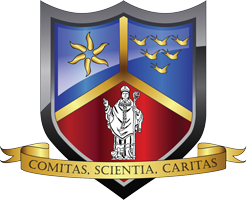Science
Meet the Department
- Mr Filsell – Subject Leader of Science
- Mr Lahache – KS4 Co-ordinator of Science
- Miss Vince – KS3 Co-ordinator of Science
- Mr Tadros – Teacher of Science & Assistant Principal
- Mrs Adams – Teacher of Science
- Mr Curtis – Teacher of Science
- Mrs Fox – Teacher of Science
- Miss Tuen-Matthews – Teacher of Science
- Miss Roycroft – Teacher of Science
Introduction
Welcome to the Science Department. Science is a core subject both nationally and at St Richard’s with every pupil completing at least 2 GCSEs at KS4.
We aim to enable all pupils to think scientifically both through theoretical and practical activities. A good knowledge and understanding of science is not only essential for a wide range of careers, but also to make informed choices in wider society including diet, energy use and materials used to make a wide range of products.
Science is a subject that prepares pupils for a number of careers including research, forensics, the environment, health, engineering and sport.
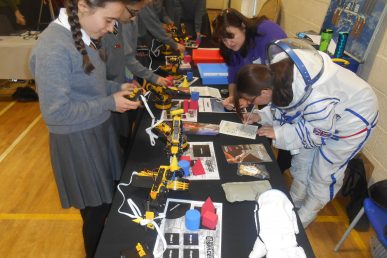
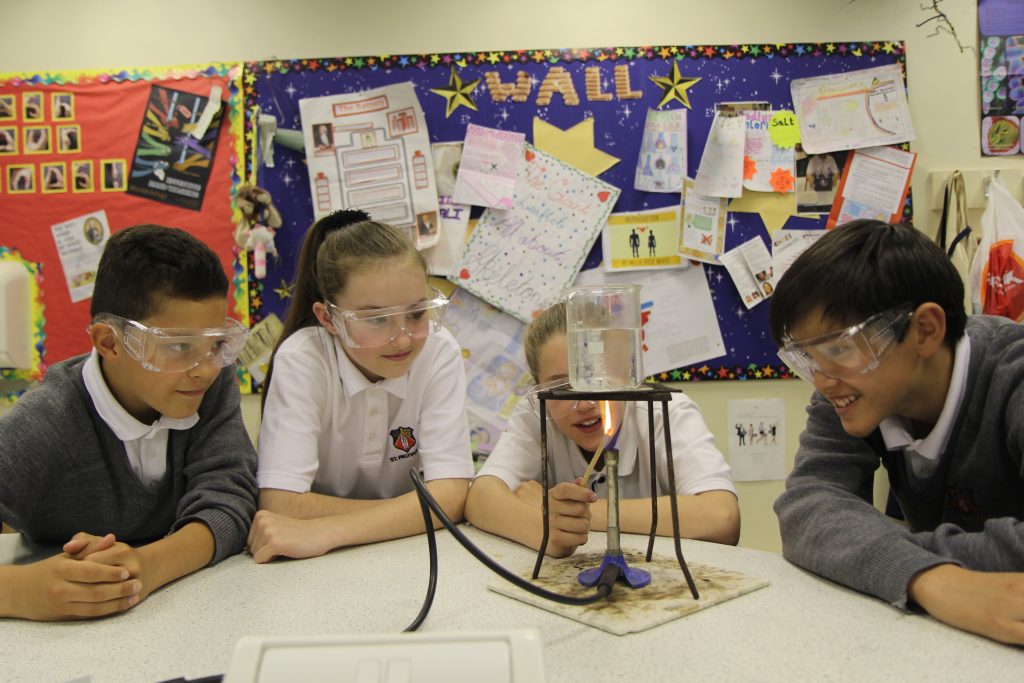
Exam Success
The science department has enabled the pupils at St Richard’s to achieve fantastic attainment and progress including for 2023:
84% achieving 4-4 or above at Combined Science: Trilogy
20% achieving 7-7 or above at Combined Science: Trilogy
89% achieving a 7 or above at Biology
89% achieving a 7 or above at Chemistry
97% achieving a 7 or above at Physics
Key Stage 3 Curriculum
Key Stage 3 Science at St. Richard’s follows a careers based thematic curriculum, developed by our department for the new intake for the 2022 – 2023 academic year (Year 9 will continue to follow our old curriculum as this is phased out).
This curriculum begins by embedding fundamental skills in Science and the core content from its three main disciplines, before looking at Science in the context of careers. This enables pupils to see why they are learning Science.
Year 7
Term 1 and 2
How to be a good Scientist
How to be a good Biologist
How to be a good Chemist
How to be a good Physicist
Term 3
Astronomer
Midwife
Term 4
Gardener
Electrician
Term 5
Dentist
Builder
Term 6
Athlete
Firefighter
Term 6 culminates in an independent project, which the pupils will use to gain their bronze CREST award, a national award celebrating Science.
There is a 50 mark summative assessment at the end of term 2, 3, 4, 5 and 6. This assessment is divided into three areas: Fact recall; exam questions; maths/practical skills.
This allows pupils to clearly see which aspects of their Science education require extra effort or intervention.
Year 8
Pupils follow the same pattern as above, with the following topics being delivered:
Term 1
F1 Driver
Climate Scientist
Term 2
Plumber
Geologist
Term 3
Marine Biologist
Nutritionist
Term 4
Farmer
Mechanic
Term 5
Astronaut
Microbiologist
Term 6
Forensic Scientist
Engineer
Year 9
- At the end of term 2 of Year 9, there is an end of KS3 science exam.
- In order to prepare them for the exam, there is one revision lesson for every unit that they have covered in Year 7 and 8.
- Many of the lessons have homework sheets containing past exam questions on that topic (15 marks) which are then marked in the following lesson.
- There are 4 ‘block’ tests to assess progress throughout terms 1 and 2.
Key Stage 3 Scheme Of Work
Revision Tips
The revision materials can be found on our Science website (need to be logged onto the school VLE to access)
https://sites.google.com/a/
The following videos will help with revision skills:
How to write effective flashcards: https://youtu.be/
Powerful ways to remember what you study: https://youtu.be/
How to use flashcards using the Leitner system: https://youtu.be/
I understand that some pupils will think that “revision doesn’t work” or “Flashcards don’t help” but I can guarantee to you they do, when used correctly.
Your child also has access to www.educake.co.uk, a quizzing website which can also be used for revision purposes.
Key Stage 4 Curriculum
In Key Stage 4 we follow our own in-house scheme that has been developed by our teachers for the specifications of GCSE Combined Science: Trilogy from the exam board, AQA.
Double Award/Triple Award
In KS4 pupils are taught in mixed ability groups and entered for foundation or higher tier for their GCSE Science exams with the exception of one select group of pupils that are entered for the triple award (3 GCSEs based on the single Sciences). The content for their GCSEs are divided up into a number of units which last approximately nine or ten double lessons. At the end of every unit there is a test which assesses the pupils’ understanding and skills. The units are as follows:
Biology:
B1 – Cell Biology
B2 – Organisation and photosynthesis
B3 – Infection and response and respiration
B4 – Homeostasis and response
B5 – Inheritance, variation and evolution
B6 – Ecology
Chemistry:
C1 – Atomic structure and the periodic table
C2 – Quantitative Chemistry and energy changes
C3 – Chemical changes
C4 – Environmental chemistry
C5 – Organic chemistry
C6 – Chemical analysis and reaction rate
Physics:
P1 – Atomic structure
P2 – Energy and particle model
P3 – Electricity
P4 – Waves
P5 – Forces and motion
P6 – Electromagnetism and Space (Space is triple Science only)
At the end of Year 11 all pupils will be entered for their GCSE examinations.
The double groups (Higher and Foundation) will sit 6 exams:
Biology paper 1 (16.7%)
Biology paper 2 (16.7%)
Chemistry paper 1 (16.7%)
Chemistry paper 2 (16.7%)
Physics paper 1 (16.7%)
Physics paper 2 (16.7%)
All 6 exams are 1 hour and 15 minutes and equally contribute to their Science double award. Each exam will assess their knowledge and understanding, mathematical skills and knowledge of required practicals, using multiple choice questions, structured questions, closed style questions and open style questions.
Pupils with a particular aptitude for Science and are expected to achieve a minimum of grade 7 in Year 11 are given the opportunity to study triple Science during KS4. The course is recommended for pupils who wish to study A level Science(s) after Year 11. In each of the above units there is extra content/lessons in which those studying for triple award will be assessed on. The triple groups will also sit 6 exams in the same format as the double group. However, each exam will be 1 hour and 45 minutes long (contributing 50% of each subject specific GCSE). The pupils in the triple group will then receive three separate GCSEs (Biology, Chemistry and Physics)
Key Stage 4 Scheme Of Work
An array of revision videos from Youtube, intervention sheets, a required practical booklet for pupils, the AQA specifications and various past exam papers can all be found on the St Richard’s Science website.
We order Collins revision guides with exam practise questions (receiving a discounted price) in which pupils will have opportunities in the year to purchase (pupils will receive letters during the course of the year).
Assessment in Science
At KS4, pupils are set an aspirational target grade based on Fischer Family Trust and our own internal assessment data. Pupils are expected to achieve this grade and will be supported to do so. Work is marked using descriptors at KS3 and GCSE grades at KS4. Past paper questions are marked according to exam board mark schemes.
Pupils will be assessed regularly within the topic area using a range of tasks assessing both knowledge and scientific skills including research, risk assessment, data, processing, analysis, concluding and evaluating. All pupils have a formal assessment at the end of each block of work and an end of year exam.
Extra-Curricular Activities
All pupils have access to a wide range of extra-curricular opportunities, including Young Investigators Club, Archeology Club, Electronics Club and a range of trips, lectures and other enrichment activities.
Young Investigators club, coordinated by Mrs. Fox, is a lunchtime club open to Year 7 where pupils undertake short projects and experiments which cover any and all areas of Science.
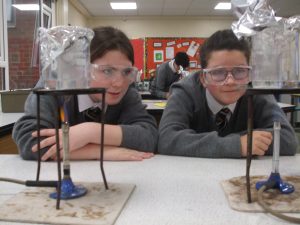
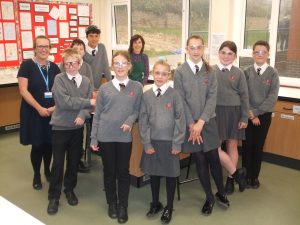
Electronics club, coordinated by Mr. Curtis, is an afterschool club open to KS3 pupils. Pupils develop soldering skills which are then applied to a variety of projects, some pupils also develop programming skills utilised by Raspberry Pi’s which can then be used to control electronic devices.
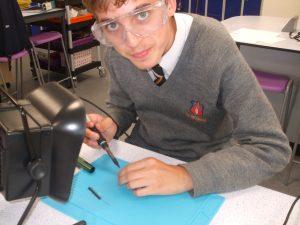
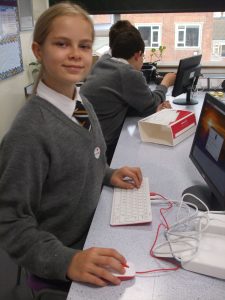
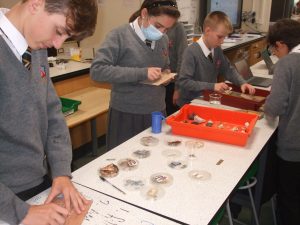
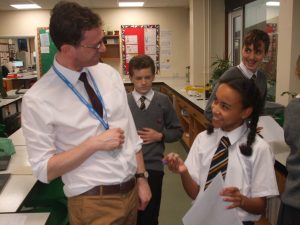
Pupils will have the opportunity to take part in several competitions in KS3 which involve completing Science projects at home for a cash prize!
